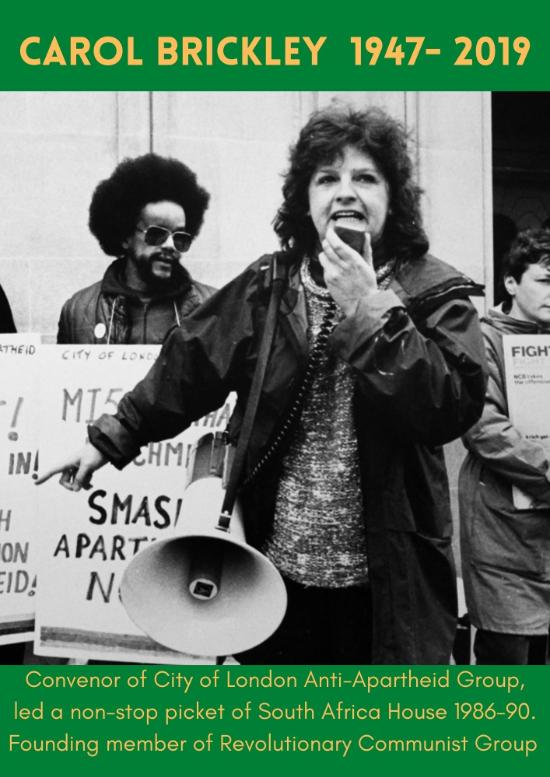Olive Morris 1952-1979
Olive Morris was a Jamaican-born British activist and community leader who dedicated her short life to struggling against the racist British state. As part of the Windrush generation, she saw first-hand the vile attacks launched against black people in Britain by the British state, by a police force that continued to harass black people using the racist the ‘sus laws’. When she was just 17, she was brutally beaten in police custody, with racist and sexist abuse hurled at her by British police officers.
She immediately involved herself in campaigns against police harassment, and later the British Black Panther movement, becoming a communist and committed anti-imperialist. She wrote widely on Marxism and class struggle, decrying the limitations of the British left, and especially the Anti-Nazi League for focusing on ‘fascism’ while failing to confront the racism of the British state. The ANL was, she said, ‘one big carnival jamboree for the middle classes’, which did not adequately raise political questions but rather buried them in the name of ‘broadness’.
An activist all her life, Morris was involved in numerous court cases and defence campaigns where black people were facing trumped-up charges. She supported the Mangrove Nine defence campaign after nine British black activists were tried for inciting a riot at a 1970 protest against police violence targeting the Mangrove Caribbean restaurant in Notting Hill, London.
Morris was charged in 1972 with assault occasioning actual bodily harm and found herself and two other black activists up against the full weight of the racist criminal justice system. Morris and her co-defendants were able to expose the judge’s role in Britain’s brutal repression of the Mau-Mau uprising in Kenya.
Morris later devoted her life to squatting and housing issues, organising people into direct action against the huge discrepancies in housing facing black people in Britain. She co-founded the Brixton Black Women’s Group – a socialist group specifically concerned with liberation for black women and the Organisation of Women of African and Asian Descent which significantly held a sit-in at Heathrow Airport to protest the Labour government’s racist policy of carrying out virginity tests on female Asian immigrants to test their residency and marriage claims.
Morris died of cancer aged just 27. She will be remembered for her huge impact organising working class people in her communities into direct struggles against the racist British state. Her legacy exists as an inspiring example of the power that can be had when communities and people come together and unite in an anti-imperialist struggle. Whilst racist policing and harassment still exists to this day, and police officers still enjoy impunity from the equally racist criminal justice system, Olive Morris’ example shows us that victories can be won, and when the people are united the British state will have nowhere to hide. As she stated, ‘The fight against racism and fascism is completely bound up with the fight to overthrow capitalism, the system the breeds both.’





